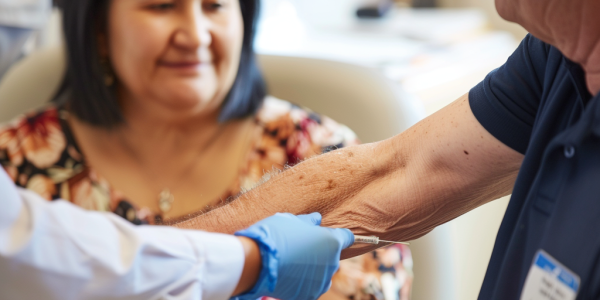Study Shows Lung Cancer Screening Saves Lives
Recent study shows that lung cancer screening can save lives, with significantly higher rates of early disease diagnosis and lower death rates among screened patients. National efforts to promote screening initiatives are highlighted, emphasizing the importance of early detection in improving outcomes for lung cancer patients.
Global Disparities in Gender Representation in Cancer Research Publications
A recent study published in BMJ Oncology reveals a persistent sex imbalance in cancer research publications, with variations among different regions and countries. Despite a slight increase in female authors, countries in the Far East, Middle East, Western Europe, and North America show poor performance. In contrast, Eastern and Southern European countries and those in Latin America excel in female authorship. The study highlights challenges faced by women in academia and emphasizes the need for evidence-based policies to promote gender diversity in cancer research.
Groundbreaking Blood Test Predicts Breast Cancer Recurrence Years in Advance
Groundbreaking new blood test hailed as major breakthrough in fight against breast cancer, predicting risk of cancer returning 3 years before traditional scans. ‘Incredibly exciting’ liquid biopsy could significantly improve chances of overcoming disease. Research showcases effectiveness of personalized test in detecting cancer DNA in blood, identifying patients at risk of relapse up to 41 months in advance. Experts optimistic about proactive approach to treatment based on predictive capabilities.
Groundbreaking Cancer Research Developments
Discover 11 groundbreaking developments in cancer research, including personalized cancer vaccines, early-stage cancer detection tests, targeted therapies, liquid biopsies, immunotherapy, artificial intelligence, genomic sequencing, nanotechnology, cancer immunogenomics, minimal residual disease monitoring, and collaborative research initiatives. These innovative approaches aim to revolutionize cancer care and improve outcomes for patients worldwide.
Top Doctors Caution Against Expensive Multi-Cancer Detection Tests
Top doctors caution against expensive blood tests claiming to detect 50 types of cancer, urging regular screenings. Multi-cancer detection tests (MCDs) are gaining popularity as non-invasive alternatives, but experts warn of false positives and lack of insurance coverage. Recent updates to screening guidelines for colorectal and breast cancers align with the advice to proceed with caution. Dr. Chyke Doubeni from Ohio State University emphasizes the risks and lack of conclusive evidence supporting the efficacy of MCDs, despite some promising results from recent studies.
Artera Showcases AI Cancer Platform Advancements at ASCO 2024
Artera, a leading company in the field of AI cancer platforms, showcased its innovative technology at ASCO 2024, highlighting significant advancements in AI solutions for cancer diagnosis and treatment. With a focus on reliability and depth, Artera’s commitment to leveraging artificial intelligence to improve cancer outcomes sets it apart as a key player in the industry.
ADRIATIC Trial Shows Durvalumab as Promising Treatment for Small Cell Lung Cancer
Dr. Julie Gralow presents interim results of the ADRIATIC trial at the 2024 Plenary Session, focusing on durvalumab as a consolidation treatment for limited-stage small cell lung cancer. Results show significant improvements in overall survival and progression-free survival compared to standard care, potentially changing clinical practice in this field.
Johnson & Johnson’s Injectable Rybrevant Shows Promise in Extending Lives of Lung Cancer Patients
Johnson & Johnson’s injectable Rybrevant has shown promising results in extending the lives of lung cancer patients, with a 38% reduction in the risk of death compared to the intravenous version. The subcutaneous formulation demonstrated better overall survival, longer duration of response, and lower infusion-related reactions. With plans to file for FDA approval, J&J aims to gain a competitive edge in the market against AstraZeneca’s Tagrisso.
Immunotherapy Trial Triples Survival Rates for Deadly Bowel Cancer
A groundbreaking trial conducted by University College London has shown that pembrolizumab, an immunotherapy drug, has the potential to triple survival rates for a deadly form of bowel cancer. Administered through a 30-minute injection, pembrolizumab can ‘melt away’ tumors, offering hope for improved survival rates and reduced reliance on traditional treatments like surgery and chemotherapy.
The Impact of Cancer on Women’s Sexuality and Relationships
Read about the profound effects of cancer on a woman’s life, including its impact on sexuality, self-image, and relationships. Three survivors bravely share their struggles, shedding light on the challenges faced by women battling this disease. Learn how cancer treatments can disrupt identity and femininity, leading to emotional and physical challenges that are often overlooked. Assistant Professor Irene Teo emphasizes the need for greater awareness and support for women navigating the complex aftermath of cancer.










